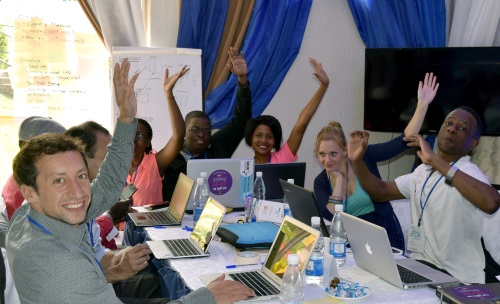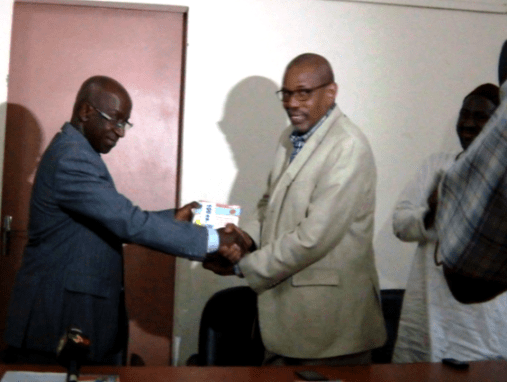Bamako, Mali - The UNFPA (United Nations Fund for Population) in Mali initiated an innovative approach in the promotion of reproductive health in a bid to reach a larger number of people in a country with high fertility rate and where the average age of marriage is 16 years (RGPH 2009). Thanks to the initiative, 243 civil registries in the capital Bamako and Kati will supply each newly married couple with a leaflet on reproductive health, in addition to their marriage certificates.
Under this initiative, UNFPA provided 13,000 leaflets to the Association of Mali Municipalities (AMM) for distribution to the newlyweds in the civil registries during the civil marriage.
The reproductive health leaflet is meant to inform and sensitize newlyweds on the benefits of family planning, pregnancy and delivery care, consequences of harmful practices such as female genital mutilation/cutting and preventing HIV/AIDS related infections.
During the handover ceremony held at the AMM, the association’s president Mr Boubacar Ba said that population issues are not satisfactorily centred in the municipalities’ concerns though the central government decentralized health and education to the municipalities in 14 health areas where he just completed appointing midwives.
"Couples should be informed. The information contained in the leaflet challenges us," he concluded.
For his part, the UNFPA representative Makane Kane said it is possible to avoid many kinds of trauma related to sexual and reproductive health when one has the correct information. "This is the goal of the leaflet that UNFPA is availing newlyweds with," he said.
According to Mr Kane, the idea of producing such a document sprouted when the Malian population reached 14.5 million, according to the General Population and Housing Census (RGPH 2009).
Mali's population is mainly young. Its steady growth is due to high fertility (average 6-7 children per woman), a steady decline in mortality, the return of Malians living abroad and the arrival of foreigners. At this rate, Mali’s population will be doubling every 20 years.
In this perspective, Kane said, "it is necessary to prepare young couples on the importance of responsible sexual and reproductive lives. Each couple is free to have the number of children they want. But it is equally important to ensure the protection of the child’s physical integrity. Research shows that harmful practices such as female genital mutilation/cutting can cause various psychological traumas including sometimes infertility, and complications related to pregnancy and childbirth. Difficulties during delivery can cause tear thus obstetric fistula."

Mr Kane hoped that this handover of leaflets will be the beginning of a partnership that UNFPA has established with the Association of Mali Municipalities around three strategic areas: civil registry, health, youth employment. He also announced that he will ensure that at least 30% of mobilized resources in the new UNFPA - Mali cooperation programme be allocated to the decentralized structures.
Furthermore, recalling the interest the organisation has in youths, Mr Kane stated that UNFPA, together with other partners, has come up with the Youth and resilience programme in two municipalities in Bamako (3 and 6), in Mopti, Timbuktu and Gao to facilitate young people's access to knowledge and job opportunities.
Closing the ceremony, the AMM president hoped that the sexual and reproduction health leaflet’s experience for newlyweds will be extended to all municipalities in the country. The UNFPA team welcomed the idea.



